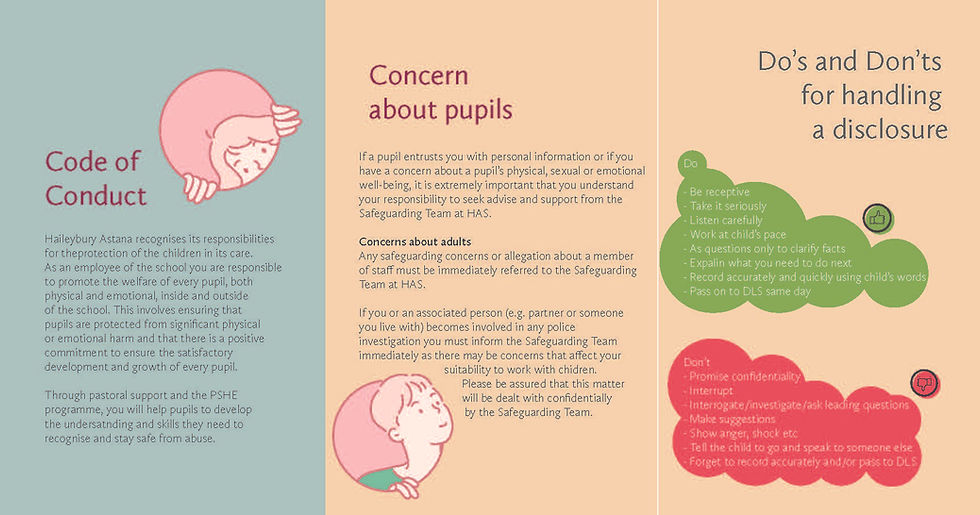Outstanding Safeguarding
- Jonathan Ullmer

- Jun 4, 2021
- 3 min read
The regulations are clear as to the format of your safeguarding policies, notices with helpline numbers and ensuring your school is secure. Most schools will also have a school council to give young people a voice, but there’s so much more to it than all than this. School Councils can end up being either a popularity contest or scraping the barrel as to who stands, a policy does not mean things are done in practice, and in the middle of all this, how do you know who is at risk and needs your help?
I can only give my own experience of how to move forward and make safeguarding a central part of school life and make it really excellent or outstanding.
Pupil voice is crucial, and empowering young people at all levels is key. We ran leadership training courses which students could refer themselves to, and we ran a day or two day training programme to learn how to serve others and to help understand that leadership is not about complaining, but in doing things to make your school a better place. It demands hard work and action, and a desire to support others. From this sprang a range of initiatives from pupil mentoring to projects to support the school and wider environment, and ways to engage young people in their school. It helps nurture a place where young people are empowered, and the school council becomes a force for change and action.
Technology has also brought tremendous support, and programmes which include pupil questionnaires and attitudinal surveys can be a really useful tool. Of course, any system is not perfect and has limitations, but attitudinal surveys can pick up pupils who are really not happy, and allow pastoral staff to tailor solutions geared to your specific school environment. It allows you to be proactive, rather than only running a reactive approach to deal with things when they go wrong. You can spot some issues in advance and pick up pupils who you may not realise actually need your help.
So what about safeguarding policies, which can be long winded documents which staff sign without reading or reflecting on. You can have discussions at staff training days looking at issues, but one innovative thing we found worked really well, was creating small folded cards which would fit into a wallet or purse. These can be for parents and friends. reminders about visits and small summary booklets for security guards, where applicable. A visitor code of conduct is also incredibly helpful so expectations are clear for all.




These small summary cards can be given out following reminder training and discussion and help chop a safeguarding policy into small chunks with key reminders for staff.
One group of staff who deserve particular mention in this day and age and drama and music staff, who are often in close contact with pupils, or even touching them in peripatetic lessons. Drama can also engage emotion, and can make staff vulnerable without realising it. Relaxed, informal relationships many drama or arts teachers had in the past are no longer appropriate and staff need to be very careful in protecting not just their pupils, but also themselves. A special small reminder booklet for these staff can be really helpful, and you can see what we did below:


I'm sure there are a wide range of other ideas which help give your school an edge when it comes to safeguarding and protecting children. Its great to share ideas and I hope you find them helpful.
Jonathan Ullmer



Comments